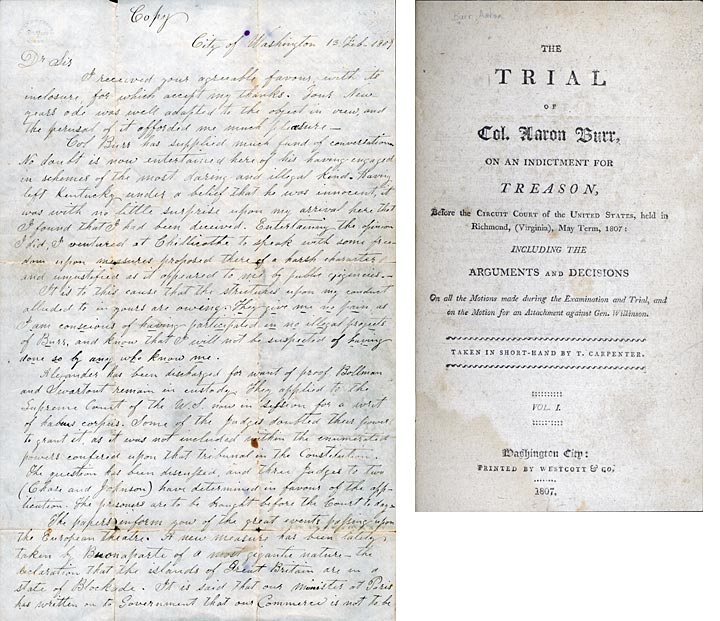On December 24, 1806, the General Assembly approved an act "to prevent unlawful warlike enterprizes" evidently in response to the recent activities of Aaron Burr. In 1806, Burr had been active in Kentucky and elsewhere raising men, weapons, and supplies for a western expedition of a suspicious nature, although the precise details of the "Burr Conspiracy" have not been fully determined. It was exposed, and Burr was later tried, and acquitted, of treason. The long, intricate act specified a broad range of activities intended to "disturb the peace and tranquility of the United States or any one of them, or any territory of the United States, or any of its dependencies." Persons convicted under this act would be fined "a sum not exceeding two thousand dollars and imprisoned for a term not exceeding one year."

Henry Clay, in a letter written in February 1808 from Washington, wrote, "Col. Burr has supplied much fund of conversation. No doubt is now entertained here of his having engaged in schemes of the most daring and illegal kind. Having left Kentucky under a belief that he was innocent, it was with no little surprise upon my arrival here that I found that I had been deceived. . . . I am conscious of having participated in no illegal projects of Burr, and know that I will not be suspected of having done so by any who know me." A copy of Clay's letter was donated by Bennett Clark and Elizabeth Clark Stone; Reports of the Trials of Colonel Aaron Burr is from the Woodburn Library, Kentucky Historical Society Collections.
